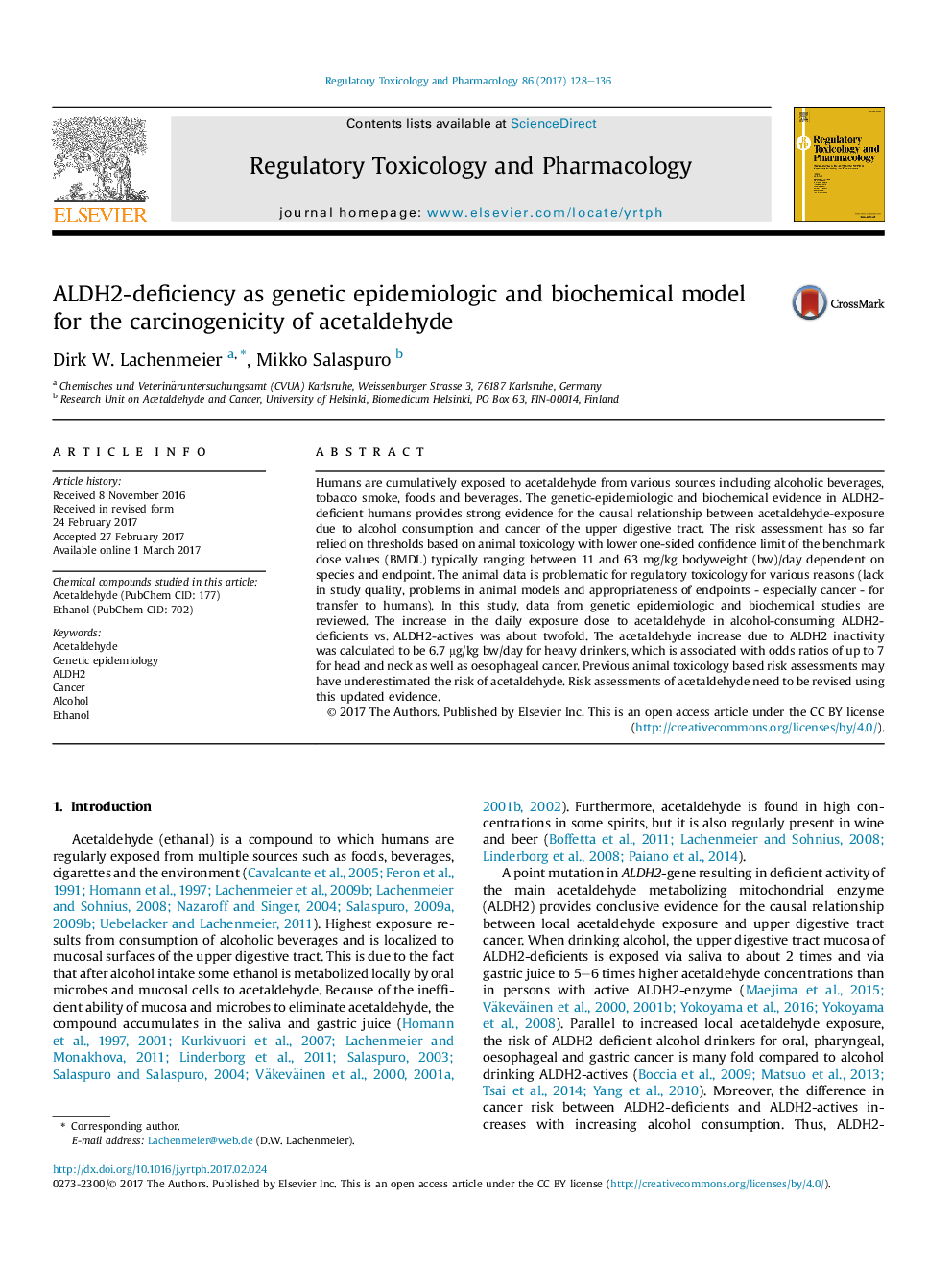| Article ID | Journal | Published Year | Pages | File Type |
|---|---|---|---|---|
| 5561286 | Regulatory Toxicology and Pharmacology | 2017 | 9 Pages |
â¢Point mutation in ALDH2 gene provides a unique human model.â¢Salivary acetaldehyde levels are causally related to oral and oesophageal cancer.â¢Studies in ALDH2 deficient humans were used to estimate exposure.â¢Human doses considered carcinogenic are below the ones based on animal toxicology.â¢Re-evaluation of the risk of acetaldehyde appears to be necessary.
Humans are cumulatively exposed to acetaldehyde from various sources including alcoholic beverages, tobacco smoke, foods and beverages. The genetic-epidemiologic and biochemical evidence in ALDH2-deficient humans provides strong evidence for the causal relationship between acetaldehyde-exposure due to alcohol consumption and cancer of the upper digestive tract. The risk assessment has so far relied on thresholds based on animal toxicology with lower one-sided confidence limit of the benchmark dose values (BMDL) typically ranging between 11 and 63 mg/kg bodyweight (bw)/day dependent on species and endpoint. The animal data is problematic for regulatory toxicology for various reasons (lack in study quality, problems in animal models and appropriateness of endpoints - especially cancer - for transfer to humans). In this study, data from genetic epidemiologic and biochemical studies are reviewed. The increase in the daily exposure dose to acetaldehyde in alcohol-consuming ALDH2-deficients vs. ALDH2-actives was about twofold. The acetaldehyde increase due to ALDH2 inactivity was calculated to be 6.7 μg/kg bw/day for heavy drinkers, which is associated with odds ratios of up to 7 for head and neck as well as oesophageal cancer. Previous animal toxicology based risk assessments may have underestimated the risk of acetaldehyde. Risk assessments of acetaldehyde need to be revised using this updated evidence.
Graphical abstractDownload high-res image (72KB)Download full-size image
